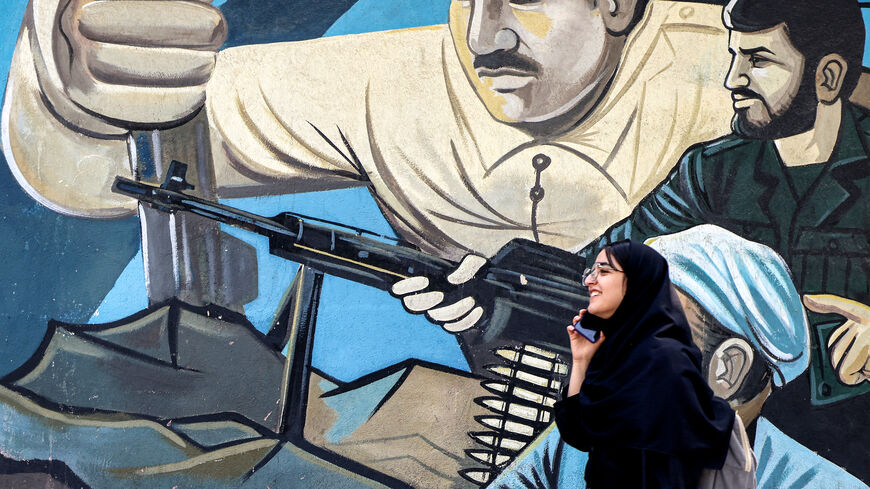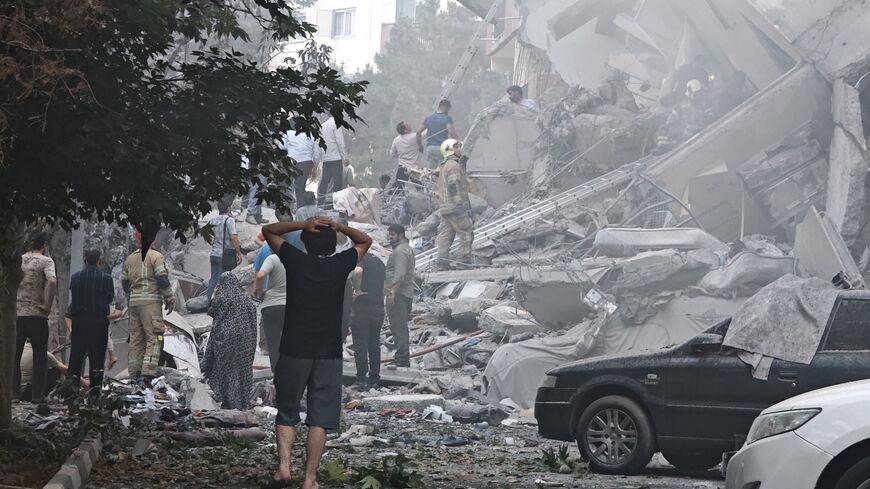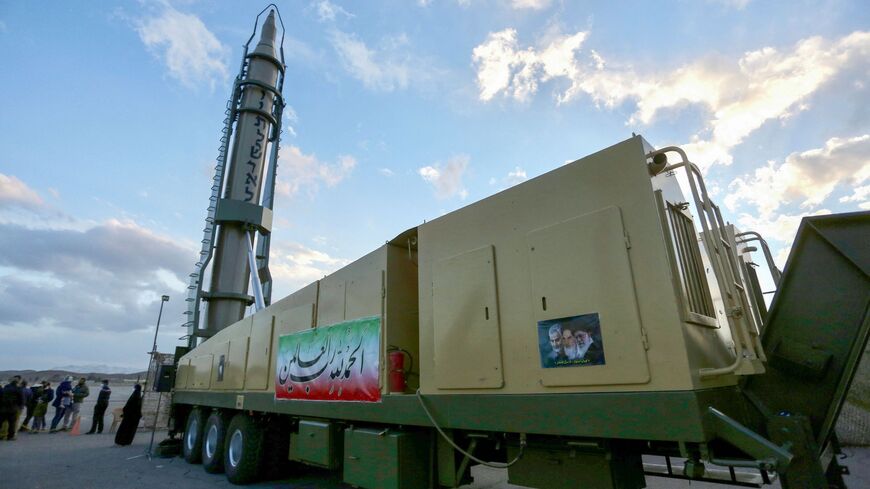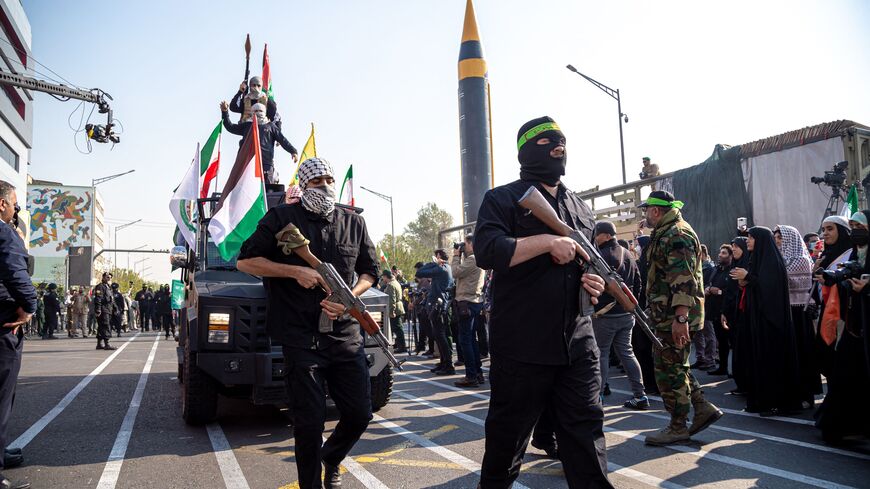Saudi Arabia ramps up regional diplomacy to avert Iran-Israel war
Saudi Arabia has reiterated calls for calm in the region amid rising tensions in the wake of the Iranian attack on Israel this week.
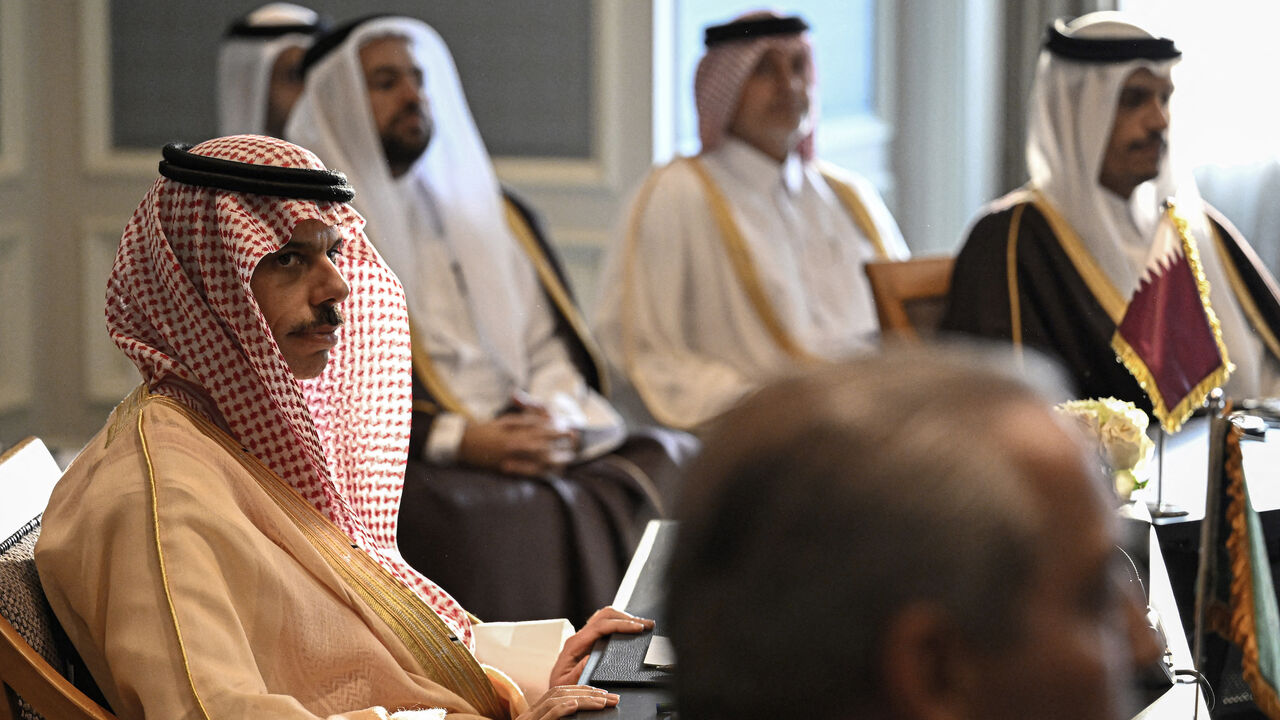
Saudi Arabia has been leading calls for calm in the wake of the Iranian attack on Israel earlier this week that sparked fears of a wider conflict that could engulf the whole Middle East.
Crown Prince Mohamed bin Salman, Saudi Arabia’s de facto leader, spoke on the phone with UAE President Sheikh Mohamed bin Zayed Al Nahyan on Wednesday.
They discussed the Iranian-Israeli escalation and the “grave threats” it poses to regional stability and security, according to the Emirati state news agency WAM.
Iran’s Islamic Revolutionary Guard Corps launched hundreds of drones and missiles at Israel on Saturday in retaliation for a suspected Israeli strike at the Iranian Consulate complex in Damascus April 1 that killed seven military officers, including two IRGC commanders.
Saudi diplomacy
The two officials called on “all parties to exercise maximum restraint and prevent the region and its people from suffering the consequences of a wider conflict,” WAM said.
The Saudi and Emirati leaders also discussed the war in the Gaza Strip and efforts to reach a cease-fire. They stressed the need for “a just and comprehensive peace based on the two-state solution.”
Earlier on Tuesday, Prince Mohammed and Qatar’s Emir Sheikh Tamim bin Hamad Al Thani reviewed the latest developments in the region in a phone call. The official Qatar News Agency reported that they agreed on the need to calm the escalation and not allow the conflict to expand.
Echoing those comments, Saudi Foreign Minister Prince Faisal bin Farhan said during a visit to Pakistan Tuesday that the region can’t afford more conflicts.
“We are already in an unstable region, and the humanitarian catastrophe in Gaza is already inflaming the region,” Prince Faisal told a press conference with his Pakistani counterpart in Islamabad. “We do not need more conflict in our region; we do not need more confrontation in our region, so it is our position that the de-escalation must be everybody’s priority.”
Saudi Arabia, one of the United States' main allies in the Middle East, has been seeking a more balanced role in the region after resuming diplomatic ties with Iran under a Chinese-brokered agreement last March.
Before the Israel-Hamas war erupted in October, Washington had been pushing for a normalization agreement between Riyadh and Tel Aviv as part of the 2020 Abraham Accords signed between the UAE and Israel.
Shortly after the Iranian attack, the Saudi Foreign Ministry issued a statement early on Sunday expressing the kingdom’s deep concerns over the military escalation, and urging all parties to exercise the “utmost levels” of restraint and spare the region more conflicts.
Prince Faisal received a phone call on Sunday from Iran’s Foreign Minister Hossein Amir-Abdollahian. The two discussed the regional tensions and their repercussions in the region, according to the official Saudi Press Agency.
Earlier, the Saudi top diplomat spoke on the phone with US Secretary of State Antony Blinken about the escalation in the region and the efforts to contain it, SPA said.
According to a readout from the State Department, Prince Farhan and Blinken also stressed the need for “a coordinated diplomatic response” to the Iranian attack.
Jordan in tough position
During a cabinet session on Sunday, Jordan’s government urged all parties to exercise restraint and avoid any actions that could lead to a wider conflict.
Jordanian King Abdullah II warned during a meeting with Iraqi President Abdul Latif Rashid in Amman on Monday that the current situation could lead to further escalation. According to a royal court statement, the two leaders agreed on the need to push for a cease-fire in Gaza and end the violence in the region.
Jordanian Foreign Minister Ayman Safadi stressed his country’s rejection of any escalation in the region. In remarks during a press conference with his German counterpart in Berlin, Safadi accused Israeli Prime Minister Benjamin Netanyahu of using his confrontation with Iran to divert the world’s attention from Gaza.
Jordan found itself caught in the crossfire during Saturday’s attack after its air defenses intercepted dozens of Iranian drones over Jordanian airspace that were heading toward Israel.
Iranian media outlets and many Jordanians condemned the kingdom as favoring Israel at the expense of Palestinians.
However, Jordan defended its actions. King Abdullah stressed during a visit in the Mafraq governorate (north of the capital Amman) on Tuesday that he will not allow his country to be “a battlefield” between Iran and Israel.
“Jordan’s security and sovereignty are above all considerations,” he added.
The king’s comments came after Safadi told the state-owned Al Mamlakah TV on Sunday that Amman would have responded the same way if Israel had fired the drones.
"Our policy is clear: We will confront any drone or missile that violates our airspace to make sure that it does not harm Jordan or threaten Jordanians," Safadi said. He also revealed that Jordan summoned Iran’s charge d’affaires in Amman in protest over Tehran’s reaction to the Jordanian actions.
“Jordan does not want a conflict with anyone — certainly not with Iran, and we want good relations with Iran,” he said.
Saudi Arabia denied reports that it downed some of the Iranian drones heading toward Israel.
Jordan signed a peace treaty with Israel in 1994, but anti-Israeli sentiment remains widespread in the kingdom. Jordanian officials have repeatedly condemned the Israeli offensive in the Gaza Strip.
Egypt, Qatar, Turkey advance calls for calm
The Iranian attack also prompted Egypt to express concern over what it described as a “dangerous escalation” in the region.
According to a Foreign Ministry statement, Egypt called on the concerned parties to “to exercise utmost self-restraint and refrain from provocations that would increase tension and instability in the region.”
“Egypt had repeatedly warned of the dangers of expanding the conflict in the region as a result of the Israeli war on the Gaza Strip,” the statement read, adding that Egypt is in constant contact with the concerned parties in an effort to contain the situation.
Foreign Minister Sameh Shoukry held two phone calls with his Israeli and Iranian counterparts on Sunday, urging both parties to refrain from further provocations that would lead to more instability in the Middle East.
Shoukry expressed his country’s readiness to continue working with “its partners in order to defuse the current crisis, which is taking a dangerous escalatory turn,” a Foreign Ministry statement read.
Qatar expressed similar sentiments about the situation. A Foreign Ministry statement released Sunday called on all concerned parties to de-escalate the situation and exercise “utmost restraint,” while also urging the international community “to take urgent action to defuse tension and reduce escalation in the region."
Qatar, alongside Egypt and the United States, is leading mediation talks on a Gaza cease-fire and a hostage deal between Israel and Hamas.
The small Gulf nation maintains good relations with both Iran and the United States. It also hosts several senior Hamas officials including Ismail Haniyeh, the head of the movement’s political bureau.
Turkey also joined the chorus, urging restraint on the part of both Israel and Iran.
“Israel’s attack against the Iranian Embassy in Damascus, contrary to international law, provoked our concern. The Iranian reprisal … showed yet again that events can quickly transform into a regional war,” the Foreign Ministry said in a statement Sunday.
Turkish President Recep Tayyip Erdogan, however, took the opportunity to blame Israel for the current tensions.
“Israel is trying to provoke a regional conflict, and its attack on Iran's embassy in Damascus was the last straw,” he told a press conference in Ankara on Tuesday.
“Those who have been silent for months about Israel’s aggressive attitude immediately condemned the Iranian response,” he added, condemning the West’s silence over the suspected Israeli strike on the Iranian Consulate in Damascus, which he said violated international law.
“But it’s Netanyahu himself who should first be condemned,” the Turkish leader said. Erdogan has been one of the most vocal critics of Israel over its war in Gaza.
Meanwhile, Turkish Foreign Minister Hakan Fidan headed to Doha on Tuesday for talks.
Saturday night’s attack was the first Iran has launched from its territory toward Israel. Iran had been leading a shadow war against Israel for years through its proxies, including Lebanese Hezbollah and Yemen’s Houthi rebels. Tensions spiked after the Gaza war broke out in October. Since then, Israel has responded to rocket attacks launched toward its territory by repeatedly striking Iran-linked targets inside Syria.
Following the attack, Iran and Israel have been exchanging threats of retaliation, feeding fears of a wider conflict. The United States and its allies are pressing Israel to exercise restraint to avoid a much wider conflict that would drag the already fragile region into a full-on war.

